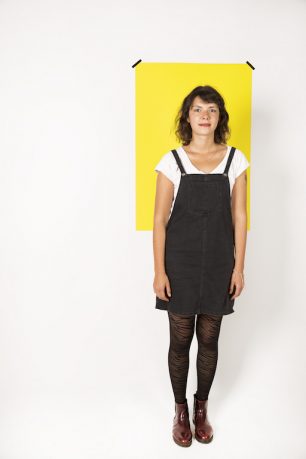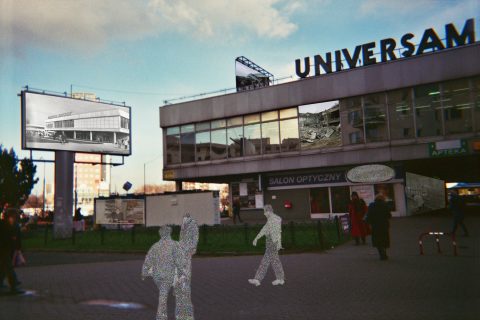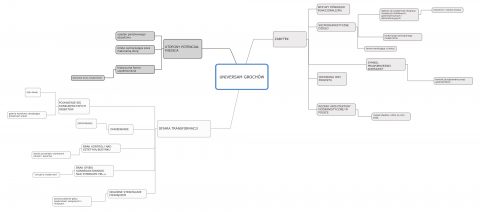The local community wanted to save Universam Grochów from demolition, which is the best testament to the value of this and many other buildings. The objective of my thesis on a building which based on superficial assessment would never be considered a monument, has been to draw attention to the need to broaden the perspective of perception of a facility or place with the intangible, or its role in a particular community.
Going beyond the realm of material value of Universam Grochów – the first shopping centre in Poland – has revealed the need to redefine what is considered a monument. Facilities from the second half of the twentieth century Poland relentlessly disappear from the city plan, and along disappears the image of the era.
We begin to pay attention to the value of such facilities, however, we can lose them before they are officially considered monuments, as in the case of Universam Grochów. Writing a thesis about it was an attempt to find a form of remember a place as a community archive.
Research carried out during the last months of existence of Universam shows that its demolition was a loss both for the local community and people unrelated to it on daily basis. Often a single recollection was enough so that the prospect of its absence sparked resentment to the decisions taken. It used to be a testament to its era, one of the last living museums of People’s Poland.

(born 1993)
Studies at the Faculty of Visual Culture of the Academy of Fine Arts in Warsaw (first-cycle studies 2013–2016, second-cycle from 2016). Co-authored projects: U as Universam (2015/16); Hack (Y)ourBorder (2015). During the Transeuropa Festival in Belgrade she represented a Warsaw-based group (a member of European Alternatives) and conducted workshops on urban space (2015). Participant of workshops of Urban Acupuncture – Jazdów Finnish Houses and co-author of the summary exhibition presented at the Festival Warsaw Under Construction 7 (2015). Participant of group exhibitions of the Faculty, including Brak (2014), Dłużew (2015).


